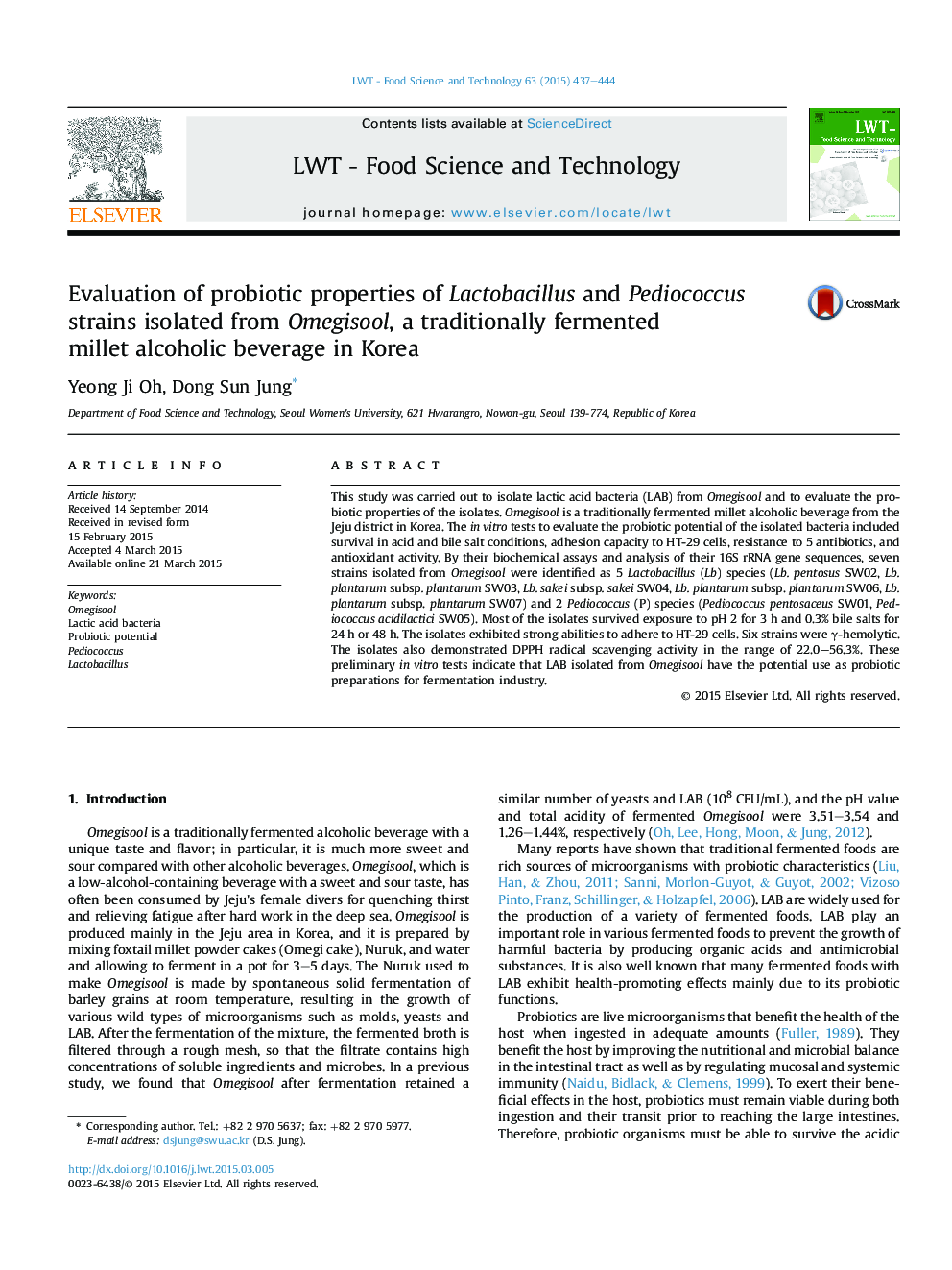| Article ID | Journal | Published Year | Pages | File Type |
|---|---|---|---|---|
| 6402101 | LWT - Food Science and Technology | 2015 | 8 Pages |
â¢Lactobacillus and Pediococcus strains were isolated from Omegisool, a Korean traditionally fermented alcoholic beverage.â¢Probiotic properties of LAB isolates were evaluated.â¢Most isolates had a strong resistance to simulated gastric juice and bile salts conditions.â¢Pediococcus strains showed the higest adhesion ability in HT-29 cell lines.â¢Lb. SW03 and P. acidilactici SW05 would be good candidates for probiotic preparations in food industry.
This study was carried out to isolate lactic acid bacteria (LAB) from Omegisool and to evaluate the probiotic properties of the isolates. Omegisool is a traditionally fermented millet alcoholic beverage from the Jeju district in Korea. The in vitro tests to evaluate the probiotic potential of the isolated bacteria included survival in acid and bile salt conditions, adhesion capacity to HT-29 cells, resistance to 5 antibiotics, and antioxidant activity. By their biochemical assays and analysis of their 16S rRNA gene sequences, seven strains isolated from Omegisool were identified as 5 Lactobacillus (Lb) species (Lb. pentosus SW02, Lb. plantarum subsp. plantarum SW03, Lb. sakei subsp. sakei SW04, Lb. plantarum subsp. plantarum SW06, Lb. plantarum subsp. plantarum SW07) and 2 Pediococcus (P) species (Pediococcus pentosaceus SW01, Pediococcus acidilactici SW05). Most of the isolates survived exposure to pH 2 for 3 h and 0.3% bile salts for 24 h or 48 h. The isolates exhibited strong abilities to adhere to HT-29 cells. Six strains were γ-hemolytic. The isolates also demonstrated DPPH radical scavenging activity in the range of 22.0-56.3%. These preliminary in vitro tests indicate that LAB isolated from Omegisool have the potential use as probiotic preparations for fermentation industry.
